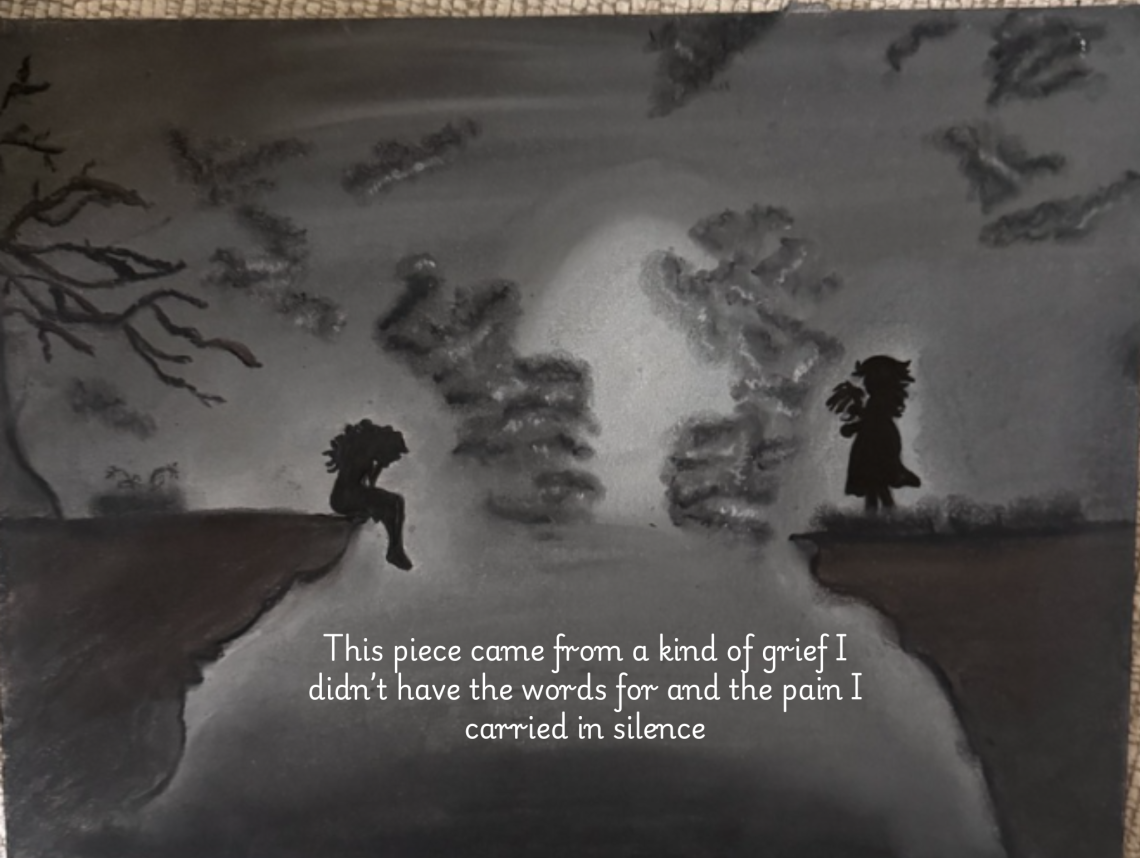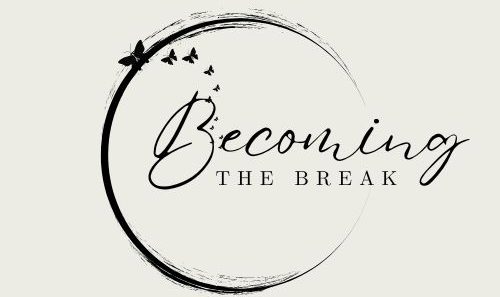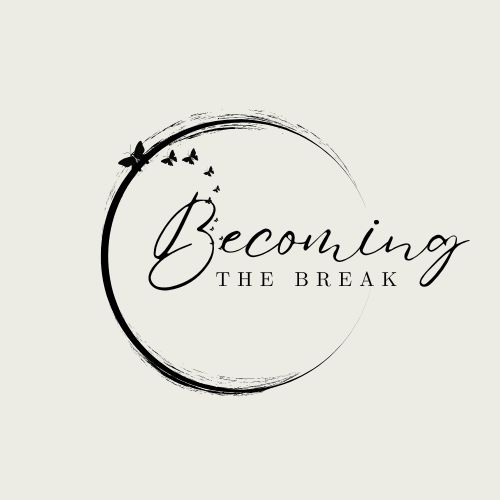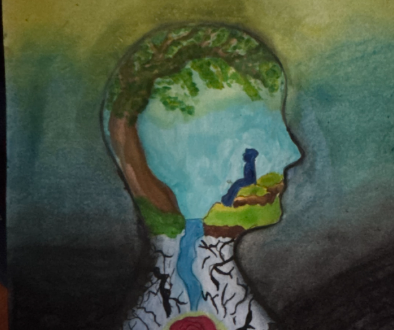
The Invisible Grief of Growing up With an Emotionally Absent Mother
Not all grief begins with loss. Some starts with absence—quiet and unspoken.
In my last post, I shared what it felt like to grieve my dad—the kind of grief that crept in long before he passed, the kind that ends in a silence you can’t undo. But this week, I’m reflecting on a different kind of grief—a different kind of pain—the kind that comes from growing up with an emotionally absent mother too caught up in her own darkness. in my last post I shared what it felt like to grieve my dad. But this week, I am reflecting on a different kind of grief. This grief comes from growing up with an emotionally absent mother.
In my last post, I shared what it felt like to grieve my dad.
The kind of grief that crept in long before he passed.
The kind that ends in a silence you can’t undo.
But this week, I’m reflecting on a different kind of grief. A different kind of pain.
The kind that comes from growing up with an emotionally absent mother too caught up in her own darkness.
When Your Mother Is Present, But Emotionally Absent
I’ve always known I was different.
My brain has always run at 100mph—full of thoughts, questions, dreams, and a constant hum of urgency.
Even as a child, I was impulsive. Thinking fast and feeling deeply.
But in my childhood home, that energy didn’t land gently, especially not with my mom, who was quietly battling her own internal storms.
She was physically there, but emotionally, she felt far away and unpredictable.
There were long stretches where she barely left her room.
Days where my siblings and I were left to figure things out on our own, not because she was gone, but because she was behind a closed door.
We knew we could go in if we really needed something. But we also knew what waited: yelling, anger. The kind of reaction that made needing anything feel like too much.
So most days, we just managed on our own.
And on days when life forced her to show up—when parenting became too loud, too messy, and too demanding—she often reached her breaking point.
And more often than not, her outbursts found me first.
I started to believe I was the reason everything felt tense.
When my mom was frustrated, when tension filled the air, I braced for it, because it always seemed to come back to me.
I thought if I could just be quieter, calmer, normal, maybe people wouldn’t be so angry.
I blamed myself for things I didn’t cause.
But I was just a kid.
A kid stuck in the chaos of a storm that wasn’t theirs.
A kid quietly feeling unloved as a child, even if no one ever said it aloud.
Consequences of Emotional Neglect
It wasn’t because she didn’t love me.
It wasn’t because she wanted to hurt me.
But as a kid with ADHD, I was intense, emotional, impulsive, and more than her nervous system could handle.
I know now she tried her best while trying to survive her own pain.
But back then, all I knew was that I felt like too much.
Too loud. Too sensitive. Too needy. Too different.
When you’re a child with ADHD, growing up with an emotionally unavailable parent has consequences.
And so, when my parents split and she left for Delaware, even though I stayed behind by choice, a part of me started telling myself a quiet story:
I’m too much… and not enough.
I learned to read the room before I even knew what that meant.
I became cautious and afraid to ask for what I needed.
I swallowed my needs before they had the chance to inconvenience anyone.
I learned to carry my emotions alone.
And deep down, I kept hoping that one day, she’d really see me.
Not just the version of me who had learned how to be quiet.
But all of me—my mess, my needs, my chaos.
Hoping for a New Chapter
When I moved back in with her at sixteen, I thought that moment would come.
I thought we’d reconnect.
Start fresh.
Rewrite the story.
But by then, we had both lived through too much.
We were both carrying pain that neither of us had the words for.
She tried, in the only way she knew how. She gave me extra space and independence.
And as I watched her pour herself into relationships, I wondered why she would never choose me.
She was there more physically this time, but still not with me.
Because she still didn’t really see me.
Not when I was struggling.
Not when I needed guidance.
Not when I needed to be reminded that I was worth showing up for.
Because she couldn’t love me the way I needed.
And underneath the moments I acted out, and the blame I placed on others, was just a girl who wanted to be chosen.
That’s where the grief lives.
In the space between what was given and what I needed.
It’s not the grief of loss.
It’s the grief of something you never had, but deeply needed.
The Kind of Healing That Begins in the Dark
This post isn’t about blaming her.
It’s about naming the pain so I can stop carrying it in silence.
It’s about telling the truth.
Because healing doesn’t always begin with forgiveness.
Sometimes it begins in the dark—
In reflection.
In compassion.
In honesty.
Sometimes it starts with finally saying:
This hurt me.
This shaped me.
And I didn’t deserve it.
That’s where I was for a long time.
And if you’re there now—stuck between what you needed and what you got—I want you to know there’s a way through.
I’m still healing and unlearning. Still making peace with the younger version of me who never felt fully seen, who learned to shrink in the shadow of an emotionally unavailable parent.
But I’m not stuck there anymore.
And if I can get here, you can too.
If This Kind of Grief Feels Familiar…
If you were the loud kid, the sensitive one, the child who felt like too much in a world that wanted you to shrink—I see you.
If you’ve grieved a mother who was emotionally absent,
If you’ve lived with the ache of feeling unloved as a child,
If you’ve ever felt like your mom couldn’t meet you emotionally, your pain is valid.
Your pain is valid.
That kind of grief is real. And it’s worth naming.
You’re not alone.
You’re not too much.
You are, and always have been, enough.
If any part of this resonated with you, I’d love for you to share your reflections or your story in the comments.
And if you’d rather stay quiet for now, that’s okay too. You can also join my email list, where I share more about grief, ADHD, healing, and breaking generational cycles.
Wherever you are in your healing—you’re welcome here






One Comment
Eve Baggs
You are so amazing…you have taken your life to others hurting and healing. I love you so very much